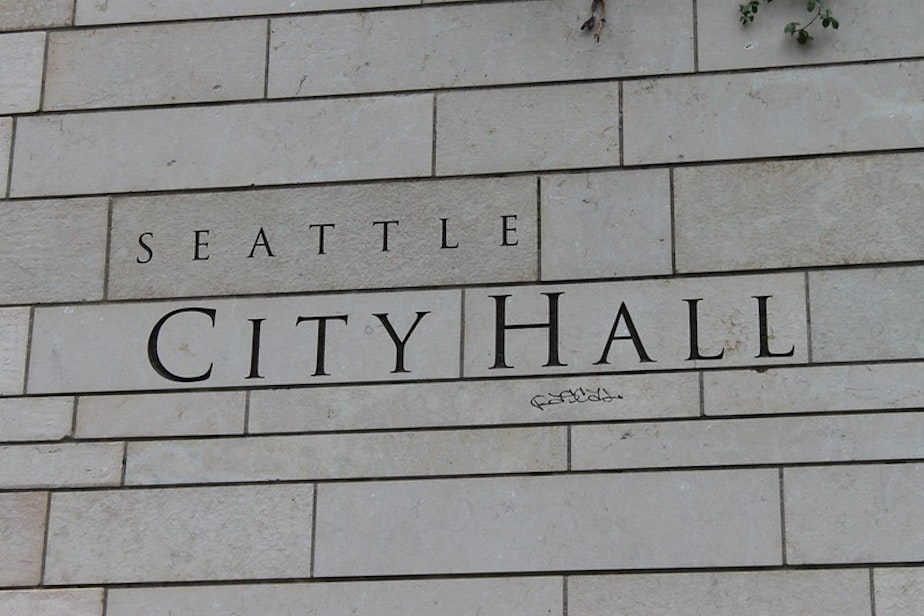Facing a $230 million deficit, Seattle mulls options to close the gap

Five new members of Seattle’s City Council said during their campaigns that they would like to audit the city budget for waste and redundancies before raising or adding new taxes.
But now, as a $230 million city budget deficit looms, the realities of a time-consuming and expensive audit process are leading those new councilmembers to rethink their approach. That means they likely have to take a hard look at something they did not want to do — add new revenue through taxes.
"In some ways, this is something that's been coming along for a long time," said Kevin Schofield, who has covered the City Council as a reporter and the founder of SCC Insight.
Schofield is also a member of KUOW's board of directors, which does not make any editorial calls or work directly with KUOW's newsroom.
The source of the deficit comes from the city's general fund, which is a $1.7 billion slice of unrestricted funds, meaning they aren't exclusively tied to specific city services (like revenues from City Light and Public Utilities, which are required to stay in-house). The general fund is replenished through four main tax sources — property, utility, business and occupation, and retail sales taxes.
The current crunch is related to the two revenue sources that track to the city's growth — property and utility taxes. In the wake of the Covid-19 pandemic, those two sources tanked as construction slowed and inflation rose.
To make up the shortfall, the city has two options — minimize spending or increase revenue. In last year's City Council races, spending was a primary focus for a handful of now-elected candidates, many of whom called for a comprehensive audit of city spending.
Sponsored
But Schofield says that finding room for cuts will be difficult.
"Ninety percent of [the general fund] is in seven departments in the city, and there's another 35 of them would share the other $200 million," he said. "If we want to fill a $230 million gap by cutting, I can tell you 35 departments to not go looking for the money in, because it's just not there."
That means major cuts would need to come from the police department — something city officials have campaigned against in recent years — the fire department, human services (which includes homelessness funding), the parks department, and the Seattle Department of Transportation.
The revenue side of things is just as complicated. Any changes to property taxes would require movement from the state Legislature. A progressive work group recommended a new capital gains tax in Seattle proper, and a high CEO pay ratio tax. Schofield says the former would likely meet referendum challenges if enacted, and it would be unlikely for the latter to provide a significant portion of the looming deficit.
"The first big question you're going to have to face is: Do we try to do a long-term structural solution now? Or do we kick the can down the road and do a one time fix?" Schofield said.
Sponsored
You can read Kevin Schofield's full story on the budget here.
You can listen to the full Soundside interview by clicking "play" on the audio icon at the top of this story.





